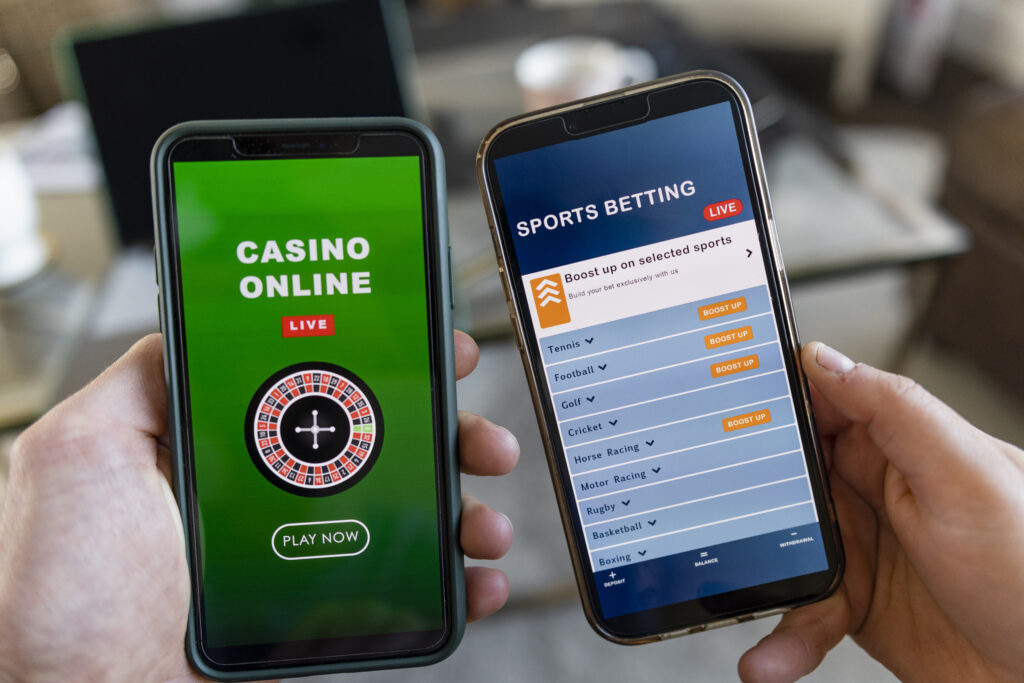
A close-up shot of an unrecognisable man and woman sitting indoors, they are holding smart phones in their hand and they are using them to gamble in an online casino and sports bet online.
Online gambling has become a mainstream form of entertainment, offering people around the world the chance to enjoy their favorite casino games, sports betting, and poker from the comfort of their homes. However, while many players gamble responsibly, a significant portion of users can fall prey to the darker side of the industry: gambling addiction. The rise of online gambling has made it easier than ever to place bets around the clock, contributing to an increase in addiction rates. Unlike traditional brick-and-mortar casinos, online platforms provide an anonymous and easily accessible environment, which can intensify the feeling of escapism and lead to compulsive behavior. This has become a major concern for mental health experts, as the consequences of online gambling addiction are far-reaching, affecting not only the individuals involved but also their families and communities. Learn more about gambling addiction.
One of the most insidious aspects of online gambling addiction is the ease with which people can deposit money and place bets at any time of day or night. Many platforms offer instant access to funds via credit cards, e-wallets, or even cryptocurrencies, making it difficult for individuals to track or limit their spending. This constant accessibility can lead to individuals losing track of time and money, especially when coupled with the psychological tactics used by gambling sites, such as flashing bonus rewards and personalized promotions designed to keep players engaged. The excitement of the “next win” or the promise of hitting a big jackpot can create a cycle of hope and despair, driving players to continue betting even after they’ve experienced significant losses. Find out more about the psychological impact of gambling.
The social and financial consequences of online gambling addiction can be devastating. People caught in the grips of addiction may find themselves in financial ruin, accumulating debt or losing their savings in the hopes of recouping their losses. The addiction can also strain relationships, with individuals hiding their gambling habits from loved ones, which can lead to feelings of isolation, guilt, and shame. In severe cases, the addiction may even contribute to mental health issues such as anxiety, depression, and suicidal thoughts. As the gambling industry continues to grow, there is an increasing need for better regulation, as well as responsible gambling initiatives, to help individuals avoid falling into the trap of addiction. Many countries, including Pakistan, are grappling with how to address online gambling’s potential harms while balancing the industry’s rapid growth. Explore how to get help for gambling addiction.
Jackpots Await! Try Your Luck with Top Casino Slots
